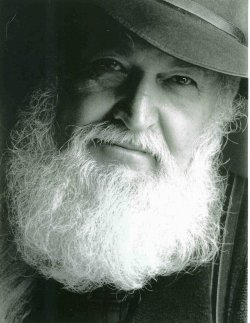Change You Can Believe In (Vol. III, No. 4, April 2011)

The latest instalment in our ongoing monthly feature.[1] You may be surprised to find that this month I am going to pass over the new fucking war that the Peace President has been kinetically pursuing against yet another Muslim country. Too obvious. Instead, we have….
Executive power
In which Obama decides he’s in favor of the unitary theory of the executive — in order to save his Czars, natch.
There is no ambiguity in that vow: none at all. He explicitly promised not to use signing statements to nullify Congressional statutes he thought were invalid. Citing his credentials as a Constitutional Law professor, Obama explained that “Congress’ job is to pass legislation,” and when that happens, a President has only two options: “the President can veto it or sign it.” In contrast to Bush — who, Obama said, “has been saying ‘I can change what Congress passed by attaching a statement saying I don’t agree with this part, I’m going to choose to interpret it this way or that way'” — Obama said he, by contrast, believes “that’s not part of [the President’s] power.” He punctuated his answer as follows: “we’re not going to use signing statements as a way of doing an end run around Congress.” It just doesn’t get any clearer than that.
But on Friday, Obama did exactly that which he vowed in that answer he would never do. When signing the budget bill into law, he attached a signing statement objecting to some provisions as an encroachment on executive power but still vowing to obey them (such as restrictions on transferring Guantanamo detainees), but then explicitly stated that he would ignore the provision of this new law that de-funds his so-called “czars” (which are really little more than glorified presidential advisers). Declaring that the Executive has the unfettered “authority to supervise and oversee the executive branch” — i.e., asserting another critical aspect of the “unitary theory of the Executive” — Obama declared that “the executive branch will construe [the de-funding provision] not to abrogate these Presidential prerogatives.” In other words, we’re going to ignore that mandate because we believe it’s unconstitutional: he’s going to use funds for exactly the purpose that Congress, in a bill he signed into law, flatly prohibited.
— Glenn Greenwald, Obama v. Obama on signing statements, in Salon.com, April 17, 2011.
Drug warfare
Hey, remember back when Obama stopped the Drug Enforcement Agency from raiding medical marijuana dispenaries in states that have legalized medical marijuana?
Here’s how Obama’s DEA stopped raiding medical marijuana dispensaries that this month in Spokane:
DEA agents raided at least four dispensaries around Spokane…. On Thursday evening Charles Wright said that “THC will be open and in full operation tomorrow.” His message less than a day later was much different.
“Effective immediately, THC Pharmacy is shutting down immediately and I recommend all pharmacies in Washington State follow suit,” he said.
DEA agents raided THC Pharmacy Thursday, confiscating all the marijuana and cash. But it wasn’t the raid that scared Wright into closing. He said his it was a conversation he said his attorney had with US Attorney Michael Ormsby Friday morning.
“I am being threatened with 20 years to life and I have no further political power to do anything. If I open the doors today they will put me in prison tomorrow,” he said.
… Charles Wright said that US Attorney Michael Ormsby has said that federal raids will continue until all dispensaries are in compliance with federal law, which states it is illegal to possess or sell marijuana.
—Rob Kauder, Feds Continuing Crackdown On Medical Marijuana Dispensaries, at KXLY.com (29 April 2011)
Here’s how they stopped it in Rhode Island:
PROVIDENCE, R.I. (AP) – The top federal prosecutor in Rhode Island has warned Gov. Lincoln Chafee that the state’s plan to license medical marijuana dispensaries violates federal law.
U.S. Attorney Peter Neronha says in a letter delivered to Chafee on Friday that federal prosecutors have the right to investigate and prosecute those who grow and distribute marijuana, even if such activities are allowed by state law.
— Associated Press, Federal Prosecutor Warns RI About Medical Pot, at abc6.com (2011-04-30)
Here’s how they stopped it in San Marcos, California:
At least one medical marijuana dispensary in San Marcos was raided by law enforcement agents Thursday, authorities confirmed, and the homes of suspected medical marijuana providers in North County were hit, as well.
Authorities raided the Club One Collective, a medical marijuana dispensary at 1232 Los Vallecitos Blvd., a business park just north of Highway 78, said San Diego County sheriff’s Capt. Mike Barnett.
“It was raided today along with several other locations throughout North County and Riverside County,” said. “Evidence was seized and money was seized.”
… Also, residences in Vista, Oceanside and Temecula were raided Thursday by the federal Drug Enforcement Administration and the San Diego Narcotic Task Force…. The homes hit by the raids were the residences of medical marijuana patients, said Eugene Davidovich, the director of the San Diego chapter of Americans for Safe Access.
Here’s how they stopped it in Metro Detroit:
Drug agents executed search warrants at two medical marijuana facilities in Oakland County on Tuesday, but it was unclear whether it signaled a new federal crackdown against the state’s fledgling industry.
The raids were part of a wide-ranging operation by the U.S. Drug Enforcement Administration, which dispatched agents in eight coordinated raids of homes and businesses in Detroit, Novi, Commerce Township, Walled Lake and Romulus.
… [T]he raids were focused in Oakland County, ground zero in the battle between medical marijuana clinics and law enforcement officers.
A DEA official confirmed that agents executed search warrants at Casab’s home in Commerce Township and his Caregivers of America marijuana facility on 12 Mile in Novi.
The DEA raided another Caregivers facility on Decker Road in Walled Lake. The building is owned by 1020 Decker LLC, whose registered agent is lawyer Barry A. Steinway of Bingham Farms, state records indicate.
Walled Lake issued a medical marijuana dispensary license to 1020 Decker LLC on Aug. 31, 2010, under terms of a local ordinance.
“The feds say it’s illegal, but the city issued them a license,” Abel said.
It’s been two and a half years, but I’m sure that sometime real soon now our Progressive President is going to get his Drug Enforcement Agency to halt those raids. They probably just haven’t gotten around to it yet, because they’ve been so very busy in the past couple months.
War on the World
Finally, I’d be remiss if I failed to mention one of our Progressive Peace President’s real triumphs. During the long, dark night of the Bush administration, the United States government became notorious for its use of torture, its disregard for due process, and its endless, arbitrary detentions in legal black-holes like Guantanamo Bay, all in the name of a ever-shifting, never-ending War on Terror. Obama promised that he would rectify that. Nowadays, thanks to Obama, they only promise to hold people in Guantanamo forever without a trial after they try out a few options and can’t figure out any kangaroo court where it would be politically expedient to send them. Under the Bush administration, the CIA became notorious as one of the leading practitioners of indefinite detention and interrogation by torture, in black-hole secret prisons where prisoners — many of them innocent victims of mass sweeps and round-ups — had no legal recourse at all. The Obama administration has put an end to all that. Now:
“The CIA is out of the detention and interrogation business,” said a U.S. official who is familiar with intelligence operations but was not authorized to speak publicly.
Huzzah and kudos. Now, instead of indefinitely detaining people without trial and torturing them for years, the CIA just kills them instead:
Under Obama, the CIA has killed more people than it has captured, mainly through drone missile strikes in Pakistan’s tribal areas. At the same time, it has stopped trying to detain or interrogate suspects caught abroad….
In summary executions like this one:
WASHINGTON — C.I.A. drones fired two missiles at militants in Pakistan's tribal areas on Wednesday…. The strikes drew a sharp rebuke from a Pakistani government that is increasingly public in its criticism of the C.I.A.'s covert role in its country.
… The drone attack was widely interpreted by Pakistan's main spy agency, the Inter-Services Intelligence directorate, as a deliberate effort by Washington to embarrass the country. "If the message was that business will continue as usual, it was a crude way of sending it," a senior Pakistani intelligence official said.
… The targets of the attack were militants commanded by Maulvi Nazir, a Taliban leader from South Waziristan…. The drones struck a double-cabin pickup truck and a motorcycle as they returned from Afghanistan into Pakistan, a Pakistani military official said. Seven fighters were killed and six others were wounded in the attack just south of the village of Angor Adda on the border between the two countries.
Pakistani officials have grown more alarmed at the frequency of the drone attacks — 117 last year, more than all previous years combined — and the fact that the targets are now largely low-level fighters and junior commanders, not top operatives. Wednesday's strikes bring this year's number of attacks to 20….
Plus ca change, mes amis. But President Bush must be careful to cover his political bases; I hear that he is planning to run for a fourth term next year.
- [1]Here's January 2011; here's February 2011; here’s March 2011.↩
